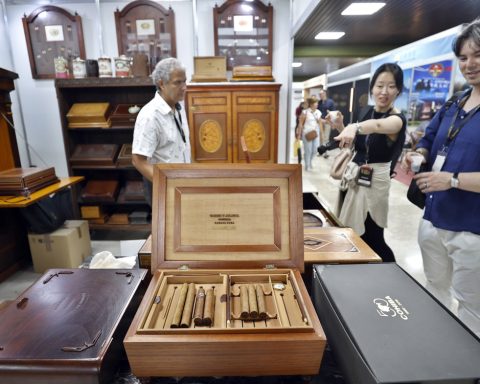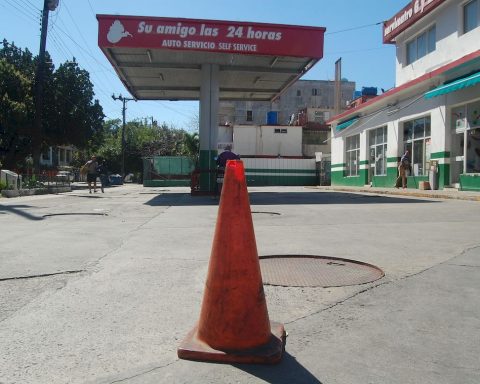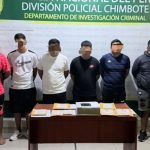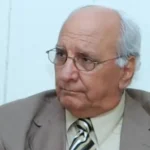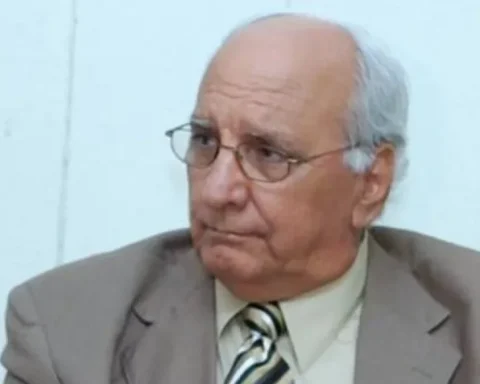How to live the elderly with the greatest dignity and well-being and what to do from the institutionality and society to guarantee it, the third meeting of the Cuban President, Miguel Díaz-Canel, with members of the Cuban Academy of Sciences (ACC).
Aging in Cuba is a conquest, stressed the President of the Republic, coinciding with one of the academics; It is a result of what the Revolution has done in all areas, starting with health, despite being a poor country and blocked for more than 60 years.
In the grandparents is the history of each Cuban family, and the goal is that each person of the third age reaches that stage and passes it with quality of life, said the First Secretary of the Central Committee of the Communist Party of Cuba (PCC).
After the substantial debate and the breadth of the studies and points of view presented by the academics, Díaz-Canel considered addressing the matter in a joint meeting of the Political Bureau of the Central Committee of the PCC and the Executive Committee of the Council of Ministers.
The complexity of the demographic dynamics on the island has been analyzed in the last two decades by the country’s leadership and includes policies and legislation, however, there is still much to do and establish.
This is a matter of systematicity, comprehensiveness and urgency, of priority, reflected the president, analyzing it in the light of current advances, such as the computerization of society, now towards digital transformation, and challenges, such as the COVID-19 pandemic and the consequences it leaves in the short, medium and long term in those who become ill, especially in the elderly.
The meeting with members of the ACC was attended by Jorge Luis Broche, member of the Secretariat of the Central Committee of the PCC and head of the Department of Attention to the Social Sector, Vice Prime Ministers Jorge Luis Perdomo and Inés María Chapman -who led the exchange-, and the Cuban Minister of Science, Technology and Environment, Elba Rosa Pérez Montoya.
The analysis Attention to the dynamics of population aging, presented by Doctor of Science (Dr.Cs.) Juan de Jesús Llibre Rodríguez, director of the Center for Alzheimer’s Studies, was the portal of the debate.
He recalled that Cuba is facing an unprecedented demographic aging; a very advanced demographic transition that determines in turn an epidemiological or health transition, with its respective social, economic and health impacts, among others.
The scientist referred, for example, to the impact on the population of dementia, a health problem that must increase due to the consequences of COVID-19, both in Cuba and in the world.
Among other analyzes, Llibre Rodríguez addressed issues of the socio-economic environment of the elderly, as well as legal aspects related to that demographic sector, and welcomed the new Family Code, which seeks to strengthen the protection of these fellow citizens.
The study presented by the academic made general recommendations; Among them, actions with strong participation of academic and scientific institutions, as well as medical-health, in addition to legislative, labor, educational, communication actions and of the Central State Administration, in order to achieve comprehensive attention to demographic dynamics and the population aging.
Dr Cs. Antonio Aja Díaz, from the Center for Demographic Studies of the University of Havana, explained that the factors that are influencing demographic dynamics are the birth rate, mortality (the country will accumulate two years of natural decline: births are less than deaths) and migrations.
The Cuban population ages and decreases, said the academic, and explained that the low level of replacement of the population comes from the 20-30s of the last century.
It is – he said – a cumulative process, only that with the Revolution mortality has been drastically reduced and life expectancy has increased considerably.
Aja Díaz declared that aging is not reversed, it is not confronted; aging is addressed, and Cuba, faced with such low fertility rates, has no alternative but to seek more births, he stressed.
In another nuance of the discussion, Dr. Cs. Mitchell Valdés-Sosa, general director of the Cuban Neuroscience Center, commented that the aging of the Cuban population requires scientific-industrial responses.
He thus referred to the portfolio of diagnostic products and non-pharmacological therapies that the BioCubaFarma group has to treat neurodegenerative diseases, concomitant with aging.
Read more: Díaz-Canel attends the act of the Central Committee for the 63rd anniversary of the triumph of the Revolution
In turn, he commented on the obtaining by the scientific institutions integrated into the group, of therapeutic molecules, also for that purpose, and the potentialities of the so-called Industry 4.0, such as 3D technologies to manufacture large-scale devices -such as hearing aids-, intelligence artificial, and advanced computing and automation.
All this, he pointed out, is being done and can be done in Cuba, due to the social nature of our system.
Dr. Cs. Anelis María Marichal González, director of the National Institute of Territorial Planning and Urbanism (the former IPF), referred to the need to adapt our physical environment to favor the elderly; to make the nearby space, the life in common, friendlier.
It is about, he said, not only eliminating architectural barriers, but also facilitating mobility in other areas, such as the transportation system, as well as the technological reconversion of certain industries located in towns where the population is aging, and the use of more efficient technologies that allow the same work to people of different ages or with whom the young population has more productivity.
Dr. Cs. Dania González Couret, Postgraduate Director of the José Antonio Echeverría Technological University of Havana, analyzed the relationship between the elderly and housing, based on the concept that houses are not just a built object, but something inherent to life of the human being, for which he called to take into account in the conception and construction of these everything concerning the individual and the family.
Dr. Cs. Juan Carlos Alfonso Fraga, deputy director of the National Office of Statistics and Information, explained that since 2006 attention to demographic dynamics occupies the country’s leadership, but it must have the highest government priority given the evidence that in 2020 the country began to decrease naturally.
That is a path from which to get out is very difficult, very complicated, he warned.
Alfonso Fraga emphasized, however, that the aging of a human being, a Cuban or Cuban, is the triumph of life over death, and in that Cuba is a world example.

